History
1923
A School of Nursing is Created to Serve Louisiana
Established in 1923 by the Franciscan Missionaries of Our Lady, the School of Nursing began in conjunction with the establishment of Our Lady of the Lake Sanitarium in the Capitol Lake area of downtown Baton Rouge, Louisiana. The School was an integral part of the new hospital’s program of service to the community. Five students from the St. Francis Sanitarium in Monroe, Louisiana, formed the nucleus of the first class of nine students. The students lived, attended classes and cared for patients in the hospital overlooking Capitol Lake. Upon completion of three calendar years of education, the students were awarded a diploma in nursing.

1960s
The School Initiates Innovations in Healthcare Education
The curriculum was revised over the years to incorporate advances in medical science, nursing science, nursing practice and nursing education. In 1960, in response to the changing health needs of the community and the prevailing nursing shortage, the School of Nursing was the first school in the South to revise its curriculum by shortening its program from three calendar years to 27 consecutive months. Recruitment to the diploma program was intensified, enrollment increased and the School continued to grow and maintain its reputation for excellence.
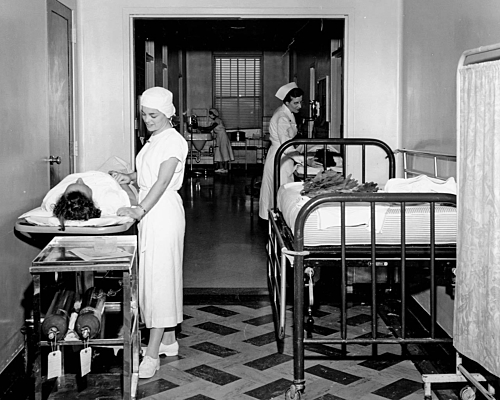
1970s
The School Becomes Home to a New Type of Student Body
During the 1970s, major changes began to occur in the student population. Along with a decline in residential students, there was a gradual but persistent increase in the number of non-traditional students (23 years of age and older) seeking admission to the nursing program. By the close of the decade, the School of Nursing became a commuter school and no longer offered on-campus housing. This coincided with the relocation of Our Lady of the Lake Regional Medical Center and the School of Nursing to the Essen Lane area.
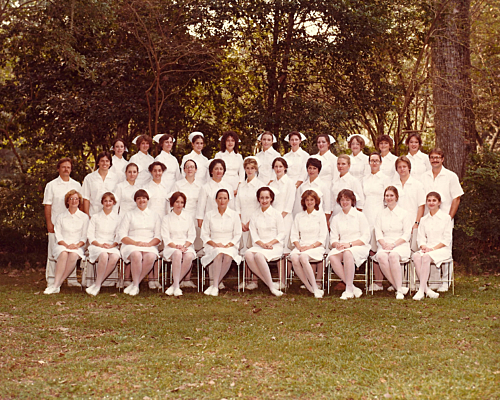
1980s
The School Transitions to a Degree-Granting Institution of Higher Education
In response to trends in nursing education and licensure, the faculty began exploring options in the 1980s to position nursing education within the collegiate setting. In 1989, the process culminated with the decision of the Franciscan Sisters and the medical center administration to transition to a degree-granting institution of higher education. In May of that year, Our Lady of the Lake College of Nursing and Allied Health was registered with the state. Within the next few years, the College began offering Associate of Science degrees in radiologic technology and general studies, in addition to nursing.
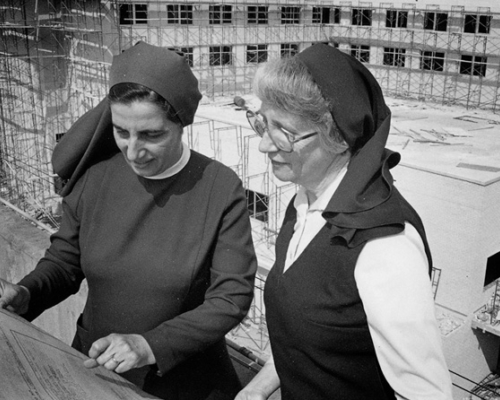
1990s
The School Officially Becomes Our Lady of the Lake College
Regional accreditation of the College was initially received from the Southern Association of Colleges and Schools Commission on Colleges (SACSCOC) in June 1994. In July of 1995, the College was officially renamed Our Lady of the Lake College. The late 1990s and early years of the new millennium were a time of expansion for the College, and several new associate degree programs were added to the curriculum. In 1998, the College was approved as a Level II institution to offer baccalaureate degrees, and by the turn of the century had added seven bachelor’s programs.
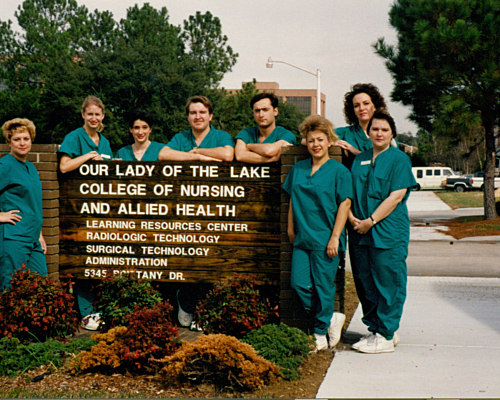
2000s
A New Level of Academic Achievement is Reached with New Master Level Programs
Additional programs were established during the summer of 2000 to offer dynamic training opportunities including practical nursing and continuing education for health care professionals. In response to the regional devastation of Hurricane Katrina in 2005, the College ramped up outreach programs on three campuses in the New Orleans metropolitan area: East Jefferson General Hospital, Tulane Medical Center and West Jefferson Medical Center. For over nine years, OLOL College administered accelerated Association of Science in Nursing (ASN) programs on these campuses, ultimately graduating over 450 nurses who contributed significantly to a healthcare system in need. Another noteworthy point in the College’s history occurred in 2005, when SACSCOC granted approval for master’s level programs in nurse anesthesia, nursing and physician assistant studies, making available for area professionals a new level of academic achievement.
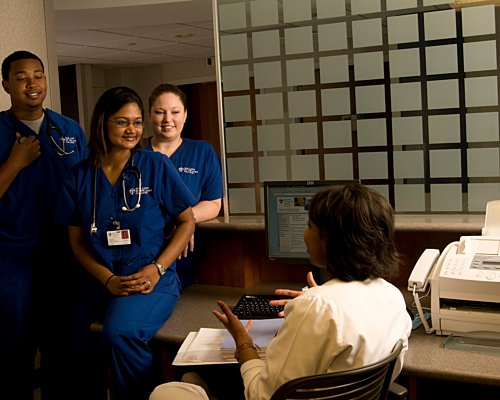
2016
OLOL College is Renamed to Franciscan Missionaries of Our Lady University
Our Lady of the Lake College was renamed Franciscan Missionaries of Our Lady University in October of 2016. The Franciscan Missionaries of Our Lady University is organized into three academic schools: the School of Arts and Sciences, the School of Health Professions and the School of Nursing. Today, the University offers two doctorate degrees, four master’s degrees, eight bachelor’s degrees and three associate degrees. In addition to an emphasis on academic excellence, Franciscan Missionaries of Our Lady University has continued the commitment to service begun by the Franciscan Missionaries of Our Lady. Our graduates possess a wide range of knowledge and skills and continue to fulfill the University’s mission of service to God's people.

2024
New Logo
During the 1970s, major changes began to occur in the student population. Along with a decline in residential students, there was a gradual but persistent increase in the number of non-traditional students (23 years of age and older) seeking admission to the nursing program. By the close of the decade, the School of Nursing became a commuter school and no longer offered on-campus housing. This coincided with the relocation of Our Lady of the Lake Regional Medical Center and the School of Nursing to the Essen Lane area.

